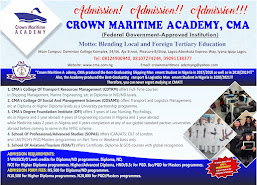Hon. Femi Oluwasanmi Calls Renewed Policy Focus
The Special Assistant to Osun State Governor, Hon. Femi Oluwasanmi, Special Assistant to the Governor of Osun State, has called for renewed policy focus on economic diversification, inclusive governance, and institutional accountability to drive sustainable growth in Nigeria.
He made the call while delivering the Advancing Policies for Economic Development and Inclusive Growth in Nigeria at an event held on November 1, 2025. The forum attracted policymakers, academics, and development stakeholders from across the country.
Aside from being honoured as an awardee, Hon. Oluwasanmi served as the key speaker at the event, where he delivered an in-depth presentation tracing Nigeria’s economic evolution from the precolonial era to modern times.
He said that Nigeria’s pre-colonial societies, including the Yoruba, Hausa, and Igbo communities, operated sophisticated systems of trade, production, and governance that sustained localized economic development. He described the era as one that promoted self-reliance, agricultural productivity, and community cohesion.
According to him, the colonial period introduced structured economic planning but redirected the nation’s productive base toward the needs of the British Empire. He cited the Ten-Year Development and Welfare Plan (1946–1956) and the 1955–1962 Development Plan as policies that focused on infrastructure expansion for export purposes rather than industrial advancement.
Hon. Oluwasanmi noted that although the colonial system introduced administrative efficiency and modern infrastructure, it also entrenched economic inequality and dependency on raw material exports. He said this legacy still affects Nigeria’s quest for sustainable development.
He explained that at independence in 1960, Nigeria embarked on several National Development Plans aimed at self-sufficiency and national prosperity. The First National Development Plan (1962–1968), he said, was disrupted by the civil war, while subsequent plans failed due to poor management and policy inconsistency.
The Special Assistant identified the oil boom of the 1970s as both a blessing and a burden, explaining that it funded major projects but led to neglect of agriculture and manufacturing. He recalled that the Structural Adjustment Programme (SAP) introduced in 1986 sought to liberalize the economy but resulted in inflation, unemployment, and social inequality.
He further reviewed later reforms such as Vision 2010, the National Economic Empowerment and Development Strategy (NEEDS), and Vision 20:2020, noting that they were well-intentioned but fell short due to weak institutions and poor implementation.
Hon. Oluwasanmi also highlighted the ongoing economic reforms under President Bola Ahmed Tinubu, saying that while they aim to stabilize the economy, rising inflation and the high cost of living continue to erode the purchasing power of ordinary Nigerians.
He observed that the current economic situation has left many citizens struggling, humorously remarking that “the national minimum wage and the price of a bag of rice appear to be in competition, both hovering around ₦68,000–₦70,000.”
The keynote speaker identified five critical areas for policy action: economic diversification, infrastructure development, social inclusion, private sector empowerment, and good governance. He stressed the need to invest in agriculture, manufacturing, renewable energy, and digital technology to reduce overdependence on oil revenue.
He said government must prioritize infrastructure expansion, including power, transport, and digital connectivity, to support industrial and commercial growth. He also called for inclusive policies that promote access to education, healthcare, and employment for youth and women.
Hon. Oluwasanmi emphasized that small and medium enterprises (SMEs) remain vital to national development and urged the government to improve credit access, provide tax incentives, and enhance training programmes for entrepreneurs.
He concluded by urging leaders at all levels to demonstrate transparency, accountability, and visionary leadership in managing the economy. He said Nigeria’s future depends not on resource abundance but on the integrity of governance and the inclusiveness of its growth process.
Hon. Oluwasanmi currently serves as Special Assistant to the Governor of Osun State, Secretary of the Ijesa South Special Assistants Forum, and Administrator of the Osun State Special Assistants Forum.



















0 Comments